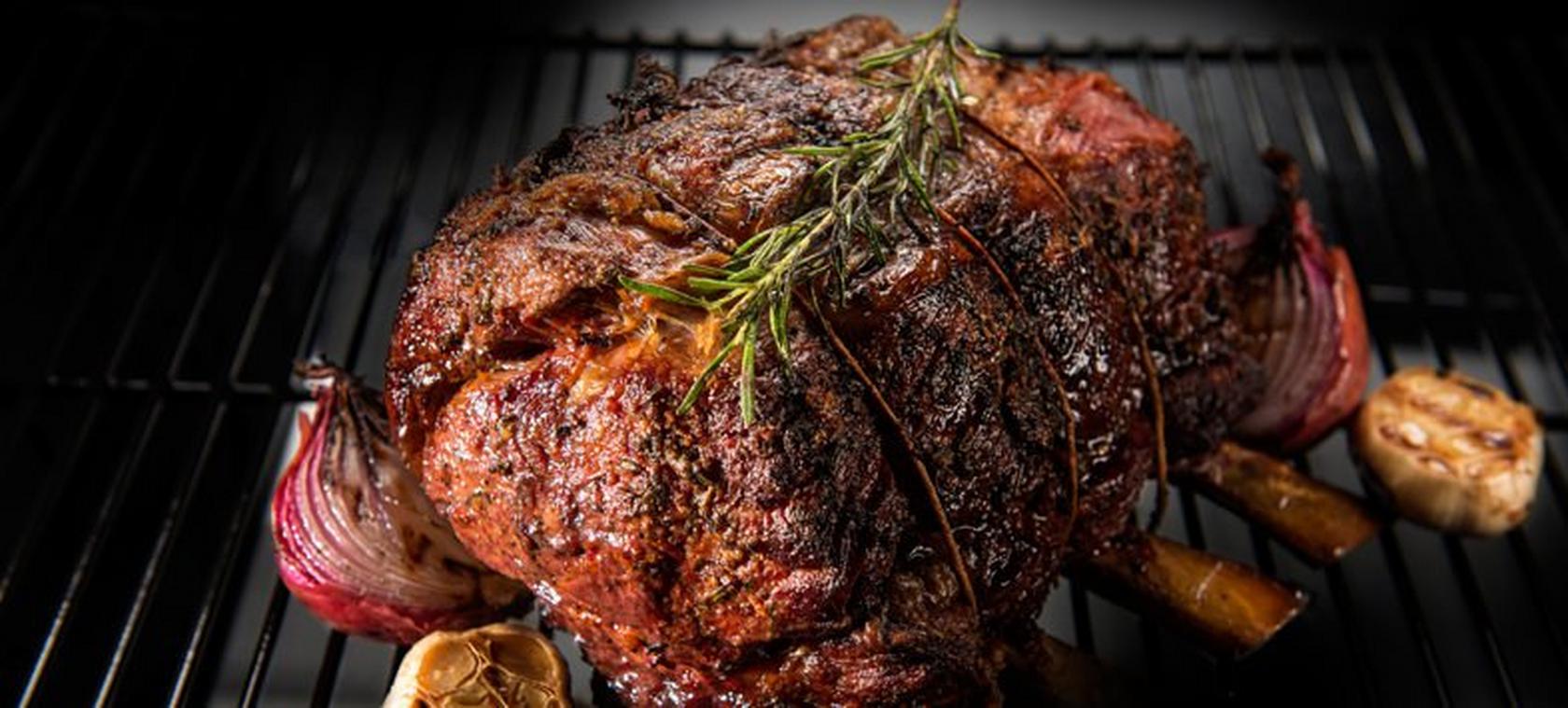Prime Rib 101 How-To

Prime Rib Is The King Of Roasts. To Help You Tackle This Royal Piece Of Meat, We Have Compiled Everything You Need To Know
Purchasing your Prime Rib:
Q: What is a prime rib? A: A prime rib is a large cut of beef from the upper rib section of the steer. The roast can typically be purchased in sections of at least 3 and up to 7 ribs. Prime Rib has an elevated price tag for the large amount of fat and marbling (flavor) in the meat.
Q: Should I buy a standing rib roast (bone-in) or a rolled rib roast (boneless and tied)? A: This is personal preference, but most typically prefer a standing rib roast (bone-in). To get the best of both worlds, have your butcher remove the rib bones, then tie them back on with butcher string. Cooking a prime rib with the bones on the bottom creates an amazing natural roasting rack.
Q: What does prime, choice and select mean in terms of beef quality? Is it worth paying more for prime? A: USDA Prime is the highest quality of beef. Most often served in fancy steak houses, prime beef is hard to find in a common grocery store. They next best quality is USDA Choice. This grade ranges from good to very high quality and can be easily found in higher-end grocery stores. This quality is used most often in restaurants. Look for bright red meat, with no dark spots, and plenty of fatty marbling. Be sure to check the dates on the package or have your butcher counter cut your roast right before you buy it. Finally, there is USDA Select, a grade of acceptable quality commonly found in grocery stores. When a store has its own private label brand, it usually is USDA Select. A Select prime rib will still be tasty, make no mistake, but will likely have less marbling and might be tougher and less melt-in-your-mouth tender.
Q: How big of a prime rib do I need? A: Approximately 1/2 lb. per person, plus an additional pound or two for good measure. Another way to plan depends on how many ribs the roast contains. A 3-rib roast feeds 8-10, typically. A 7-rib roast feeds 20-22 people.
Trimming and Tying:
Q: Do I need to trim my prime rib? A: Trim any fat that is over an inch thick, but do not trim any fat down to less than a quarter of an inch thick.
Q: Should I separate the bones from the roast if they are still attached? A: Always. Separating the ribs and then tying them back on helps the ribs act as a natural roasting rack. Using a sharp knife simply cut along the top of the bones to separate it from the roast. Use butcher's twine to tie the section of bone back onto the rib roast.
Marinating or Injecting:
Q: I've heard of people marinating or injecting their prime rib. Should I? A: It is not necessary. Marinades would only penetrate the first few millimeters of the roast. Injecting could get flavor deeper into the rib roast, but with all of the extra holes in the meat, you may lose more moisture than you gain from the injection.
Rubs:
Q: What's the best rub for a prime rib? A: We love Traeger's Prime Rib Rub, obviously. This particular rub was specifically designed and tested to enhance the flavor of your prime rib. If you want to keep it simpler, kosher salt and freshly cracked black pepper gets the job done nicely. One other little recommendation: Rub the cut ends of your roast with butter before roasting. It helps form those crusty end piece that your guests will fight over.
Cooking your Prime Rib:
Q: Do I put my prime rib on the grill cold or should I let it come to room temperature? A: Having your prime rib at room temperature allows for the most even penetration of heat during the cooking process.
Q: Can I just smoke the prime rib until it's done? A: Yes, however, if you only smoke the roast you will not have the sought-after crunchy ends. With a boneless roast, plan roughly 30 minutes per pound at 180 degrees for a rare roast. For a bone-in, plan 32 minutes per pound. Cook to temperature, instead of time, and have your internal thermometer handy.